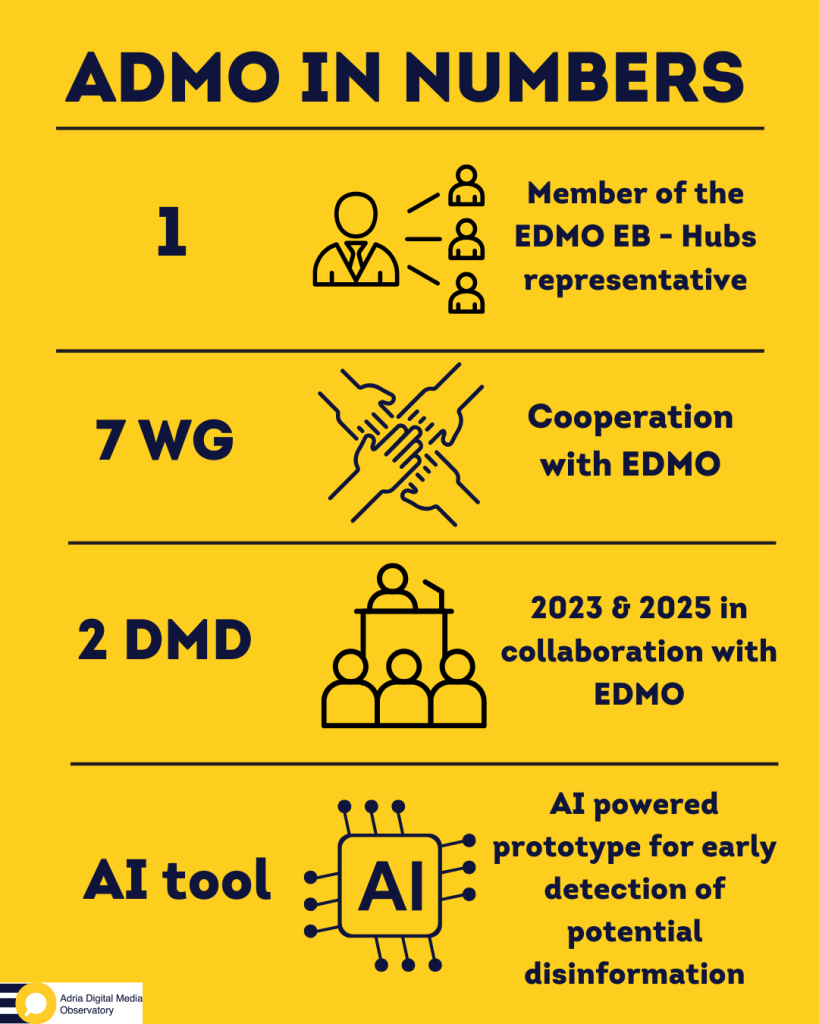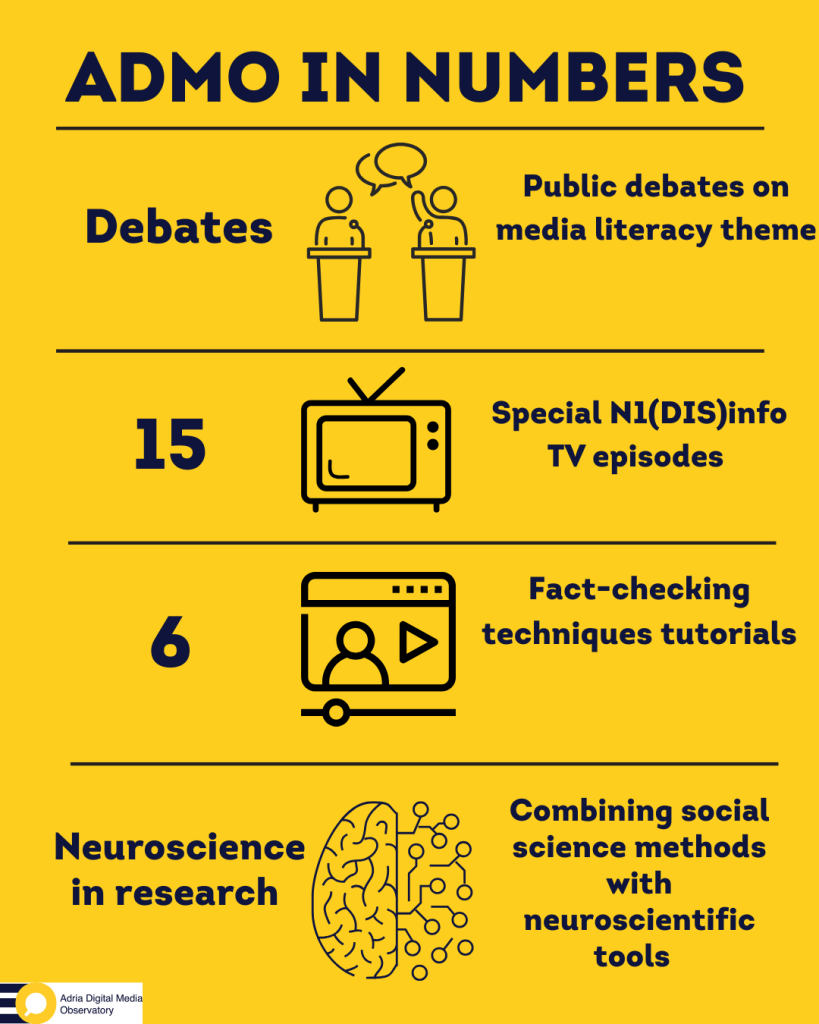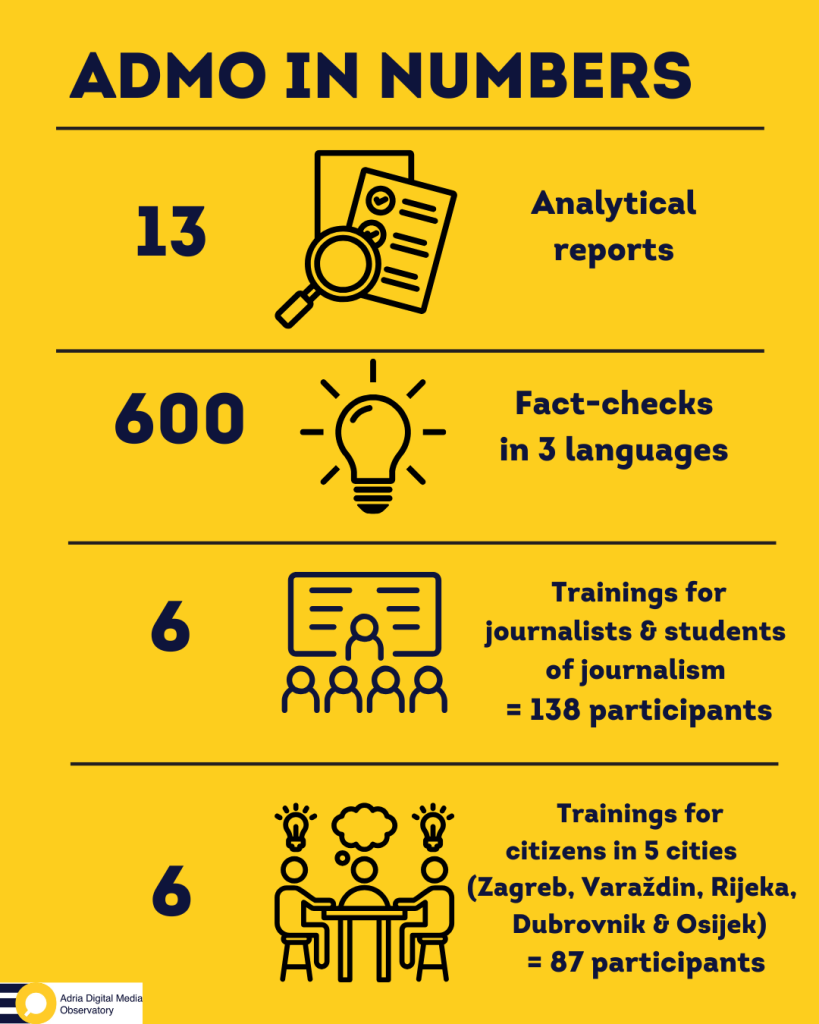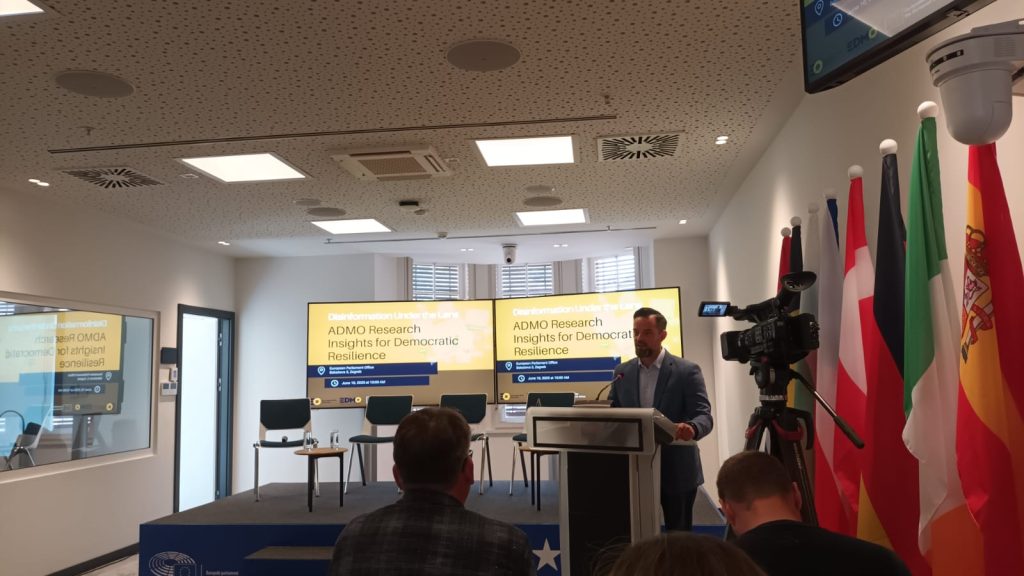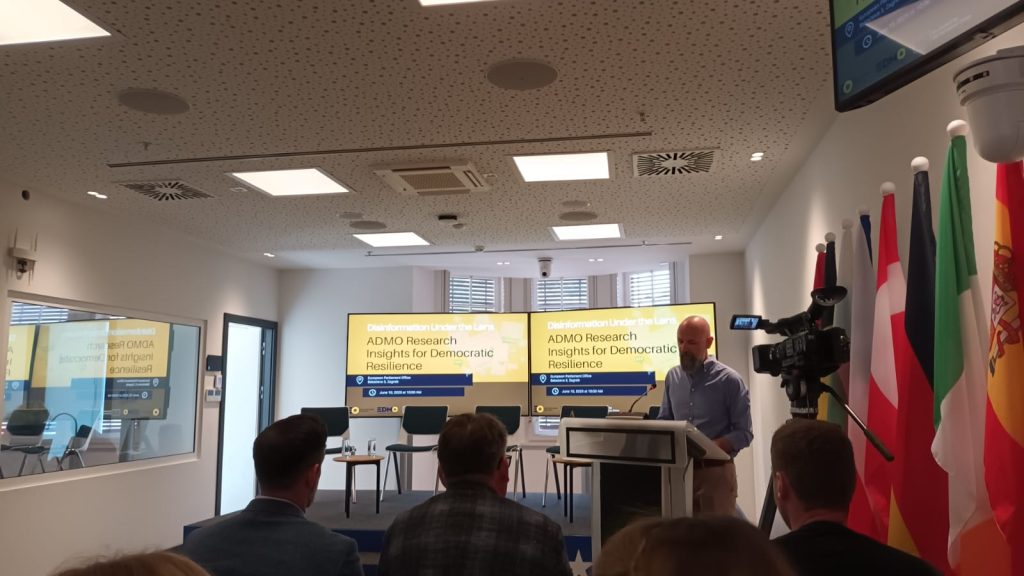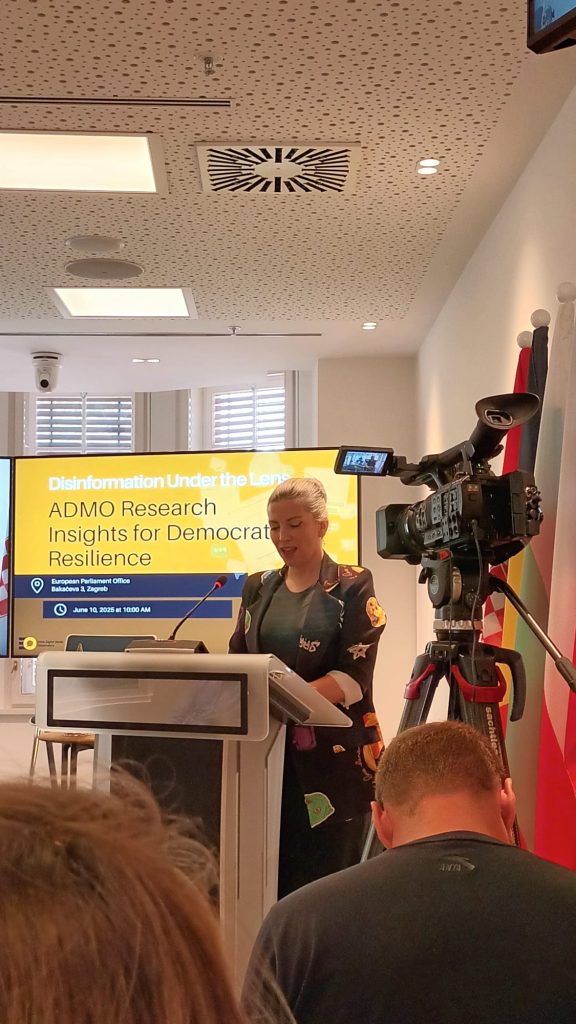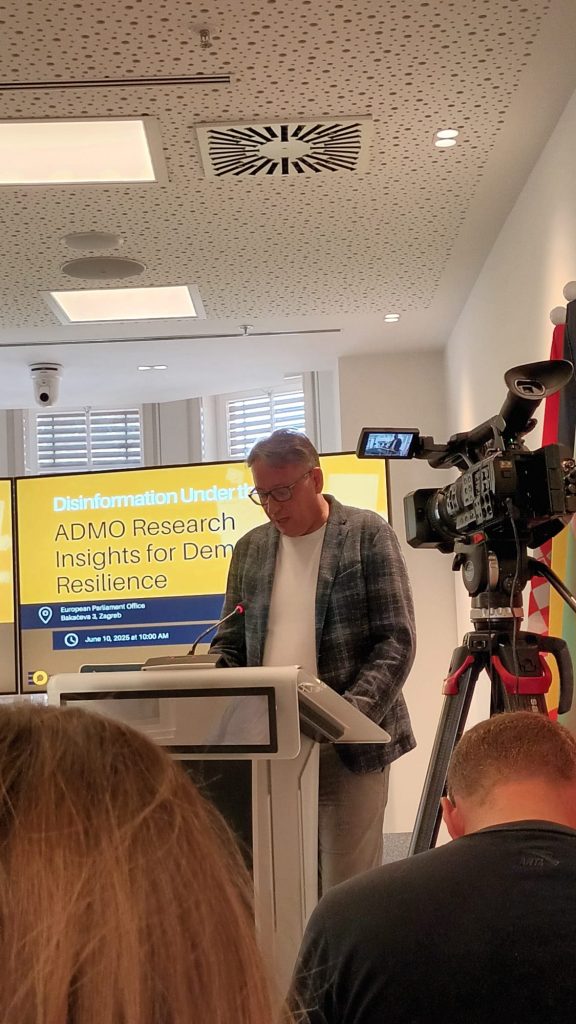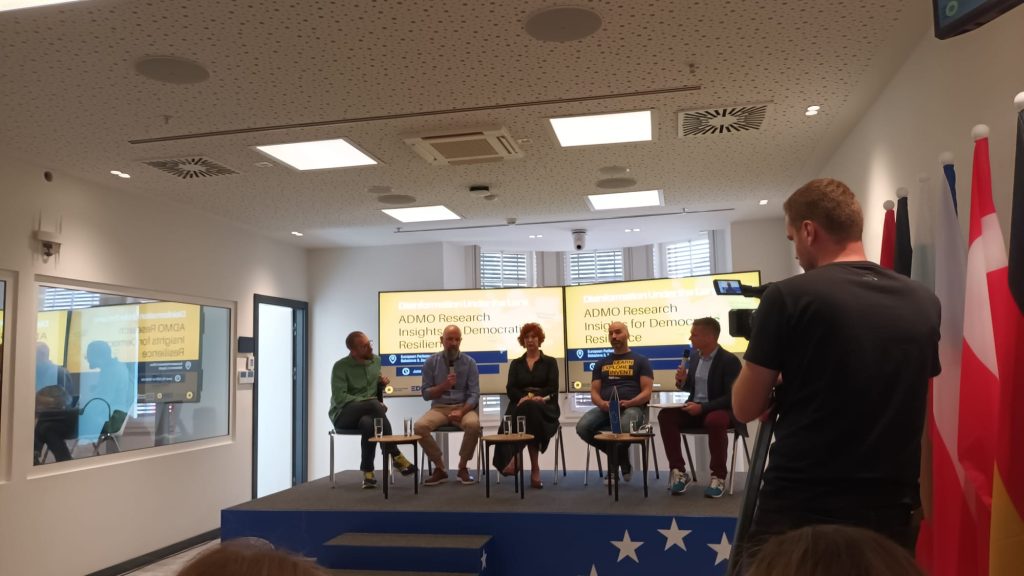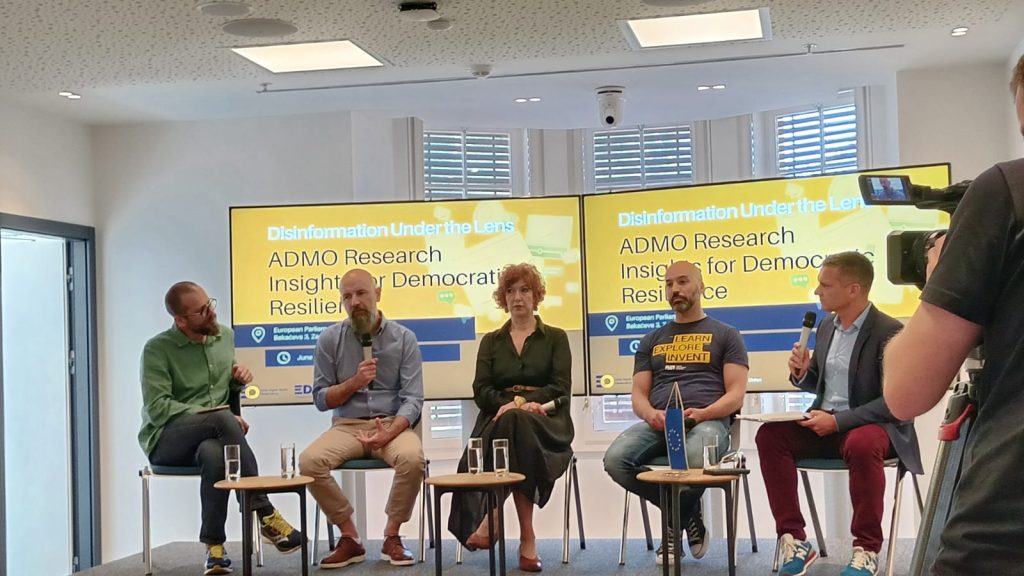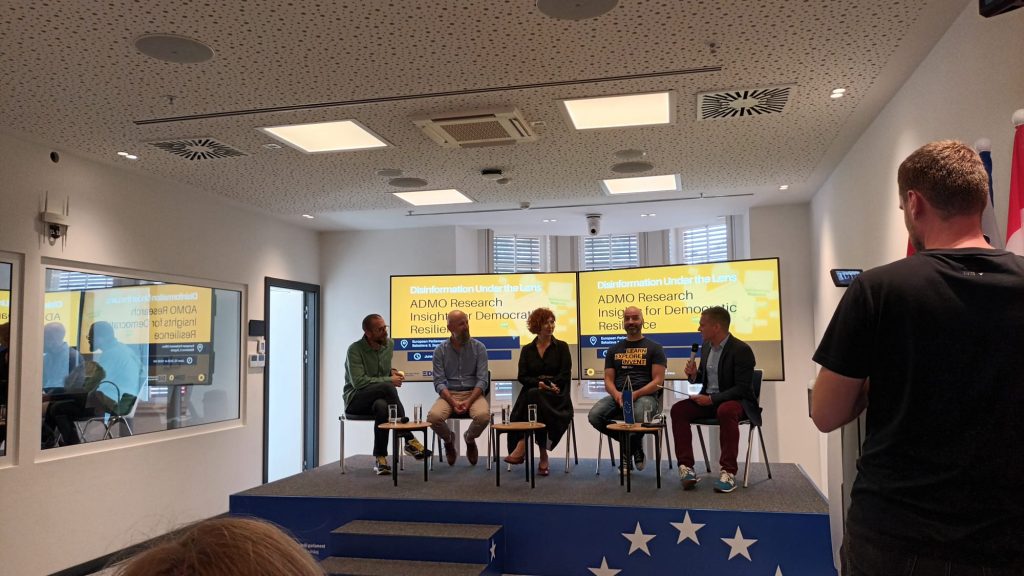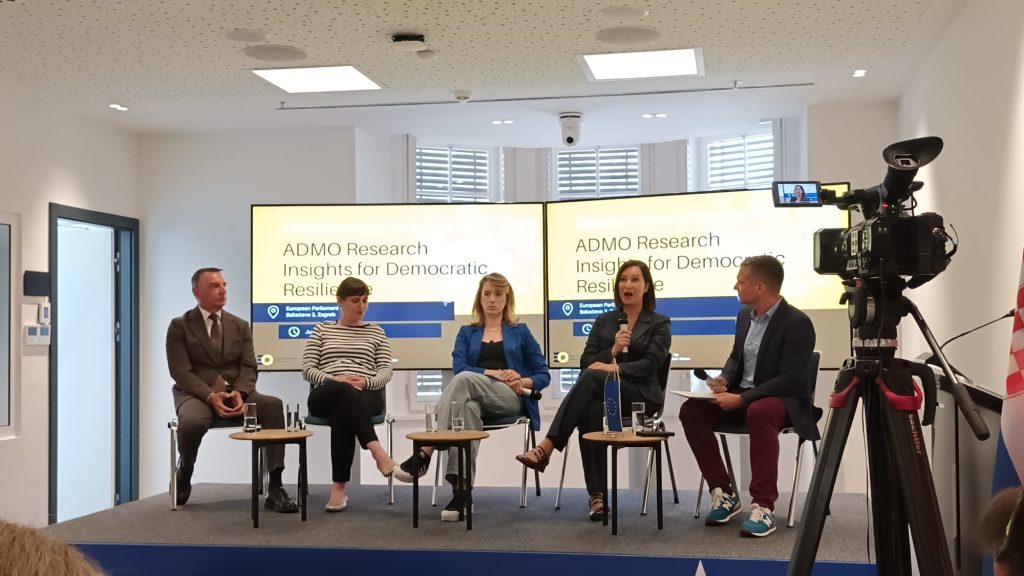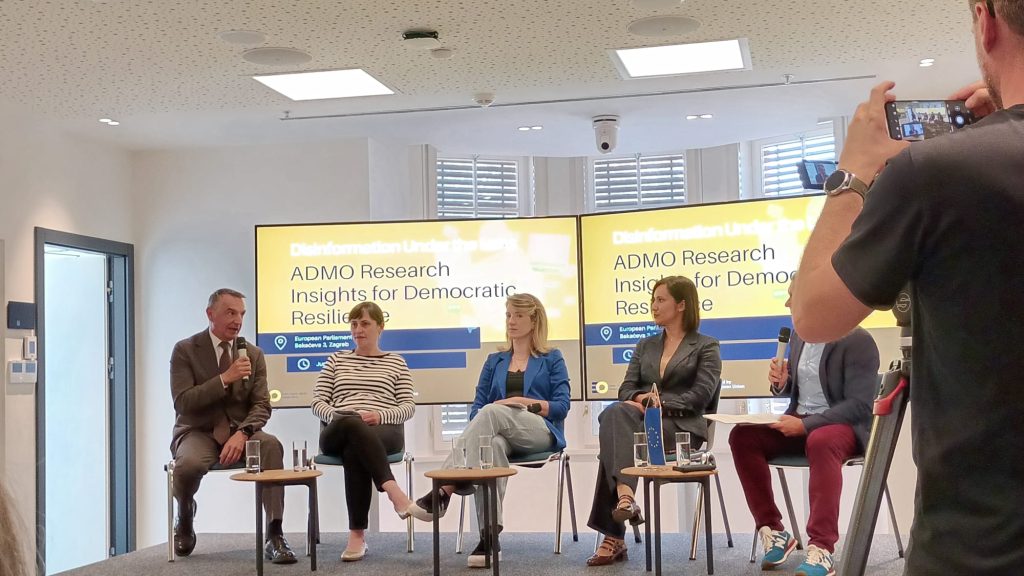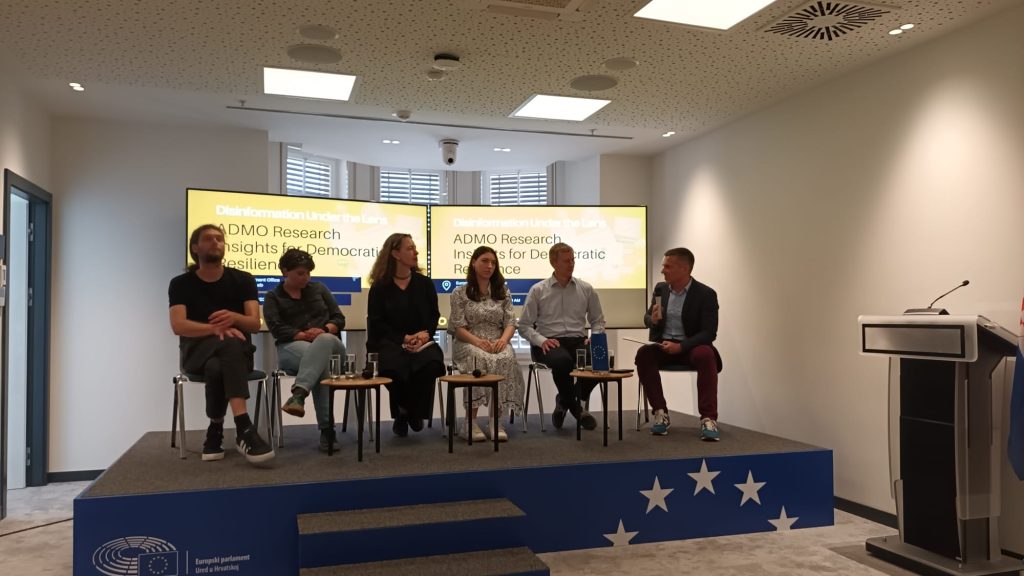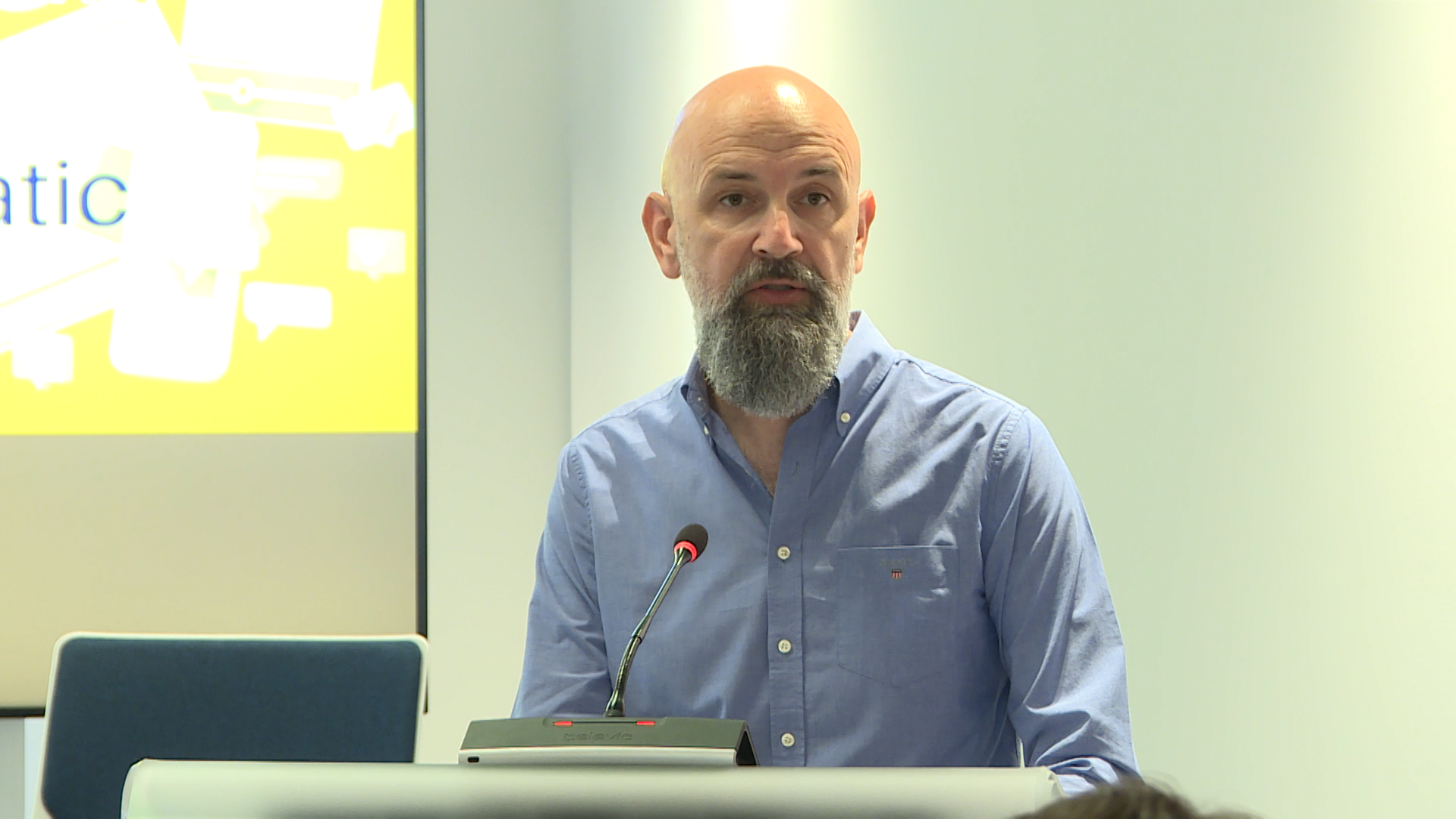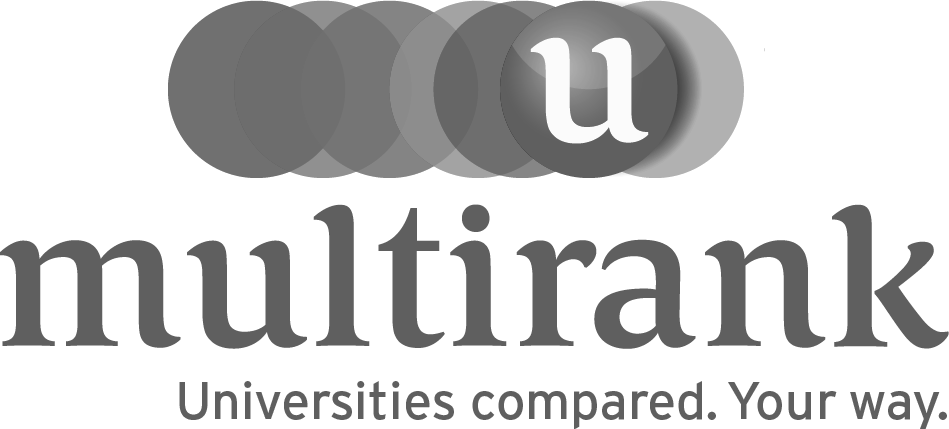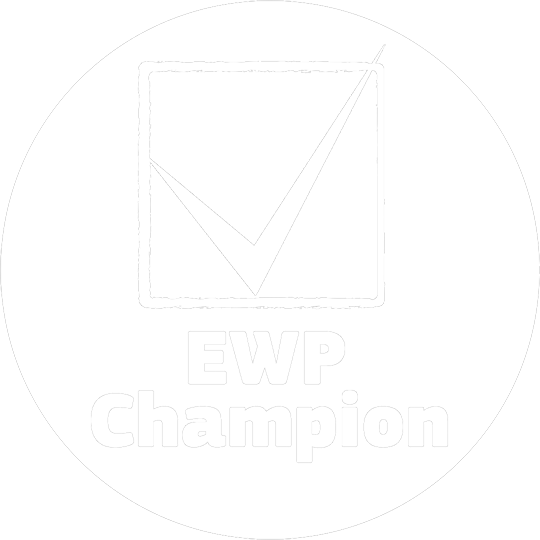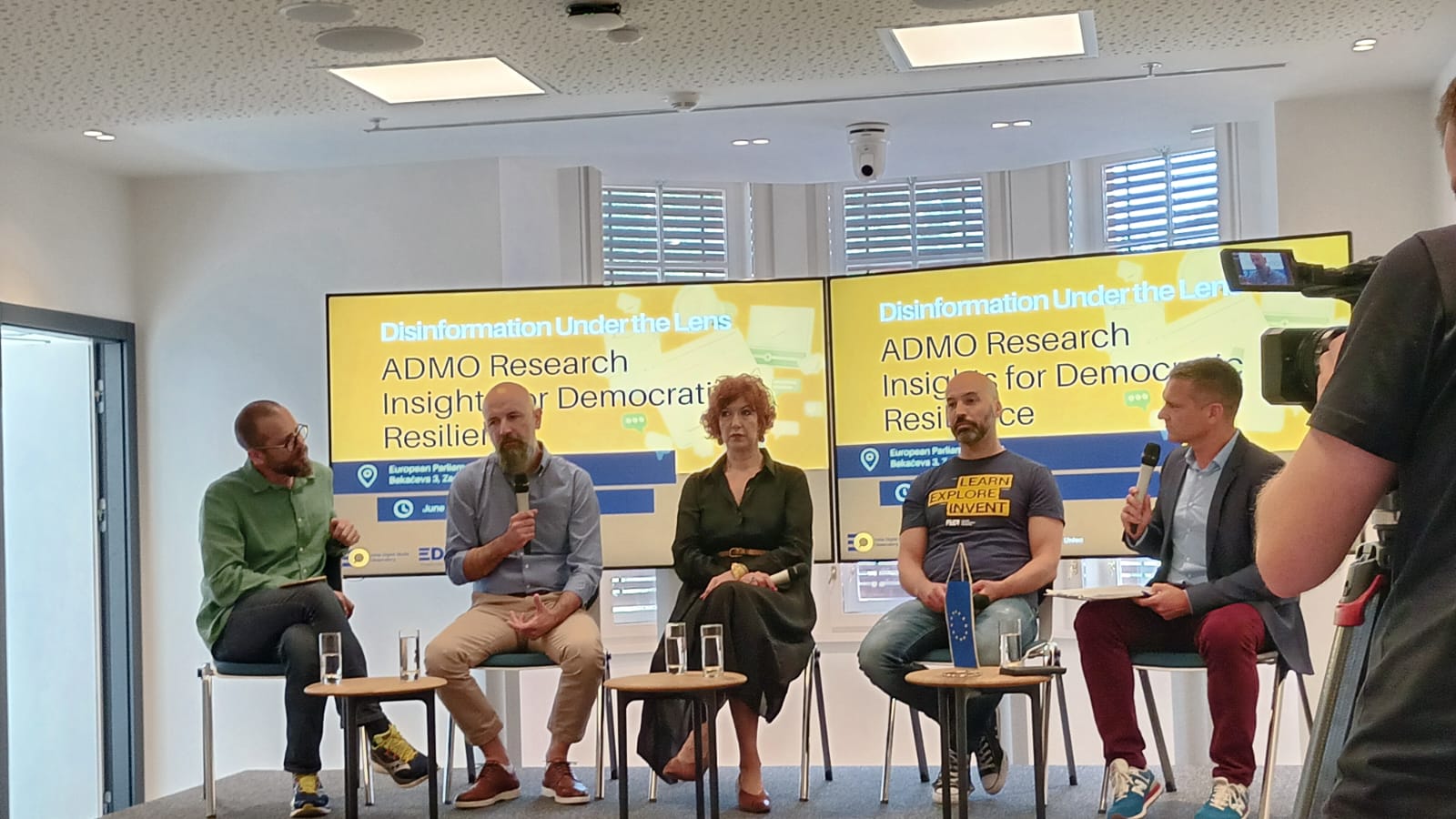
The final conference of the Adria Digital Media Observatory (ADMO) project, the regional hub for combating disinformation in Croatia and Slovenia, was held on 9 June in Zagreb at the European Parliament Office. As one of fourteen regional hubs within the European Union, ADMO has, over the past two and a half years, consistently contributed to building a more resilient society through its three core areas of work: disinformation research, media literacy empowerment, and fact-checking in the media environment.
The key achievements and outcomes were presented at the conference titled “Disinformation under the Microscope: Insights from ADMO for Democratic Resilience.”
The project coordinator and lead researcher, Professor Mato Brautović from the University of Dubrovnik, opened the event by reflecting on the project’s inception and its mission to establish a comprehensive, multisectoral regional hub for combating disinformation. “When we launched ADMO in 2023, we set ourselves an ambitious but essential goal: to create a regional hub that would monitor, analyze, and counter disinformation in Croatia and Slovenia, while remaining firmly rooted within the European EDMO network.
”Today, I can sincerely say that we have succeeded. We have built something lasting, valuable, and truly meaningful—not only for our institutions, but for the democracy we live in,” he emphasized.
Under the leadership of the University of Dubrovnik, ADMO brought together a strong network of partners, including the Faculty of Political Science, Faculty of Electrical Engineering and Computing, and Faculty of Humanities and Social Sciences at the University of Zagreb; the GONG NGO; the investigative journalism outlet Oštro from Slovenia; N1 Television; Agence France-Presse (AFP); and technology partner XWiki.
“This strong, multidisciplinary team enabled us to approach the problem of disinformation in a truly comprehensive way,” said Prof. Brautović, also announcing the continuation and expansion of the consortium, with the next phase of the project, ADMO 2.0, set to begin in September this year. The new phase will focus on advanced deepfake and AI disinformation detection, media literacy programs targeting youth and vulnerable groups, and even stronger integration with the European EDMO network and other key partners. “ADMO 2.0 will be our answer to the increasingly complex challenges of the digital age, with both existing and new partners raising the bar even higher,” he concluded.
Ivana Grkeš from the ADMO team outlined the consortium’s key accomplishments over the past two and a half years: “We published 13 research reports, produced 600 fact-checks in three languages, conducted six multi-day training programs for over 130 students, and organized media literacy workshops for citizens. Through a special N1 TV format (Dis)info, we explored and discussed global and local topics related to the issue of disinformation,” she said.
Grkeš also confirmed that the ADMO 2.0 phase will include new media and academic partners. The final conference also welcomed representatives from the Ministry of Culture and Media of the Republic of Croatia, the Agency for Electronic Media, and the European Commission Representation in Croatia.
State Secretary Krešimir Partl highlighted that media literacy, quality journalism, and robust regulation form the triangular defense against disinformation. Josip Popovac, Director of the Agency for Electronic Media, stressed that ADMO significantly strengthens the Croatian media ecosystem by linking academia, the media sector, and civil society. Andrea Čović Vidović, Deputy Head of the European Commission Representation in Croatia and Head of the Media Team, emphasized that the Digital Services Act, the first global regulation covering major digital platforms, is a true “game changer”, and underlined the importance of implementing initiatives like ADMO at both national and international levels.
The conference continued with three panel discussions featuring experts in media, journalism, and digital sciences, addressing various key topics encountered during the project’s implementation: • The first panel, “From Data to Action: How Research Can Help Counter Disinformation Narratives,” focused on the project’s research efforts. Alongside Prof. Brautović, researchers from partner organizations participated. Professor Marijana Grbeša (Faculty of Political Science) warned that the rise of populism, fueled by manipulation and conspiracy theories, creates a “disinformation chaos” that erodes public trust. She emphasized that this fight is not a futile task; rather, we must change our approach and bridge the generational divide. Professor Jan Šnajder (Faculty of Electrical Engineering and Computing) noted that generative AI makes distinguishing truth from falsehood even harder, as technology is never neutral—although within ADMO, his team developed advanced digital tools for disinformation detection. Professor Nebojša Blanuša (Faculty of Political Science) added that centers of power in democracies are struggling to compete with autocracies, while fragmented conspiracy theories are merging into unified narratives that bolster illiberal regimes. • The second panel, “Decoding the Noise: Media Literacy for More Resilient Societies,” addressed the critical role of media literacy programs. Assistant Professor Milica Vučković (Faculty of Political Science) stressed that resilience against lies and manipulation is built through systematic media education, an effort that has only recently begun in Croatia. Milica Bogdanović (GONG) added that all citizens—regardless of age or education—need a combination of media, political, and digital literacy. N1 TV’s Programming Director Tihomir Ladišić warned of commercial pressures and business models that threaten quality journalism, while Ana Kirin, Editor-in-Chief of the Media Literacy portal, argued that media literacy should become a mandatory component of school curricula. • The third and final panel, “Truth in Check: The Role and Future of Fact-Checking in Times of Crisis,” focused on fact-checking and its challenges in the current environment. Ana Brakus (Executive Director, Faktograf) cautioned that platforms relying on ad-based models—as well as ad-dependent media—are increasingly susceptible to spreading disinformation, while coordinated campaigns systematically undermine trust in the journalistic profession. Josip Šipić (Libela) noted that most dominant social media narratives are produced for political purposes. Domagoj Maričić (Assistant Director, HAKOM) stressed that while the Digital Services Act is a powerful tool, regulators can only monitor its implementation and report issues to the European Commission—they cannot control content directly. Fact-checkers Isabelle Wirth (AFP) and Žana Erznožnik (Oštro Slovenia) reminded the audience that fact-checking remains an integral part of journalistic work.
The continued implementation of the ADMO project—co-funded by the European Union under the Digital Europe Programme—is of great importance. Through research, awareness-raising, and various capacity-building efforts, it addresses the issue of disinformation comprehensively, laying the groundwork for a safer and better-informed society.
